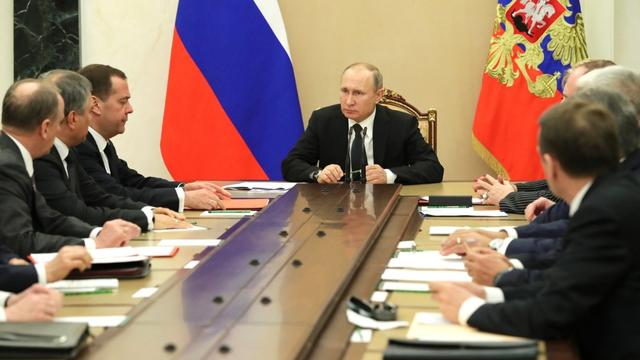Reactions to events in Ukraine prove that there is still excessive permissiveness in the religious sphere, said the national security body chaired by Putin.
by Massimo Introvigné
Critical reactions to the war in Ukraine have proven that there is still too much religious freedom in Russia and that new, tougher laws against “non-traditional” religions are needed. This is not the private opinion of a radical, but the conclusion of a July 12 meeting of the Security Council of the Russian Federationa body chaired by Vladimir Putin himself and comprising the heads of all defense and security agencies.
The council met to discuss “how to neutralize internal national security threats” that have emerged in recent months and weeks as dissent against the so-called “special military operation” in Ukraine has grown.
The Council “underlined” that one of the main problems is an erroneous interpretation of the notions of “freedom of conscience” and religious freedom. Obviously, these were used to criticize the government and had “a negative impact on the defense of the country and the security of the state”.
One problem is that several religious organizations that operate in Russia are in fact not Russian but have their leaders abroad. According to the official press release, “the meeting presented the facts of the negative impact on the situation in the country of some foreign organizations and Russian organizations controlled by foreigners, carrying out their destructive activities under the guise of humanitarian, educational , cultural, national and religious projects. This, the Security Council said, cannot continue. The Council insisted that “foreign states use the activities of religious associations to interfere in the internal affairs of our country”. Some in the Council are no doubt in favor of a ban on any religious organization having its leaders abroad, which would correspond to the Chinese model.
The Council noted the prevalence of misguided and dangerous “permissiveness in the religious sphere”, which leads to “the use of religious beliefs for negative purposes” and “the practice of religious extremism”. As readers of Bitter Winter know, “religious extremism” in Russian law does not just mean religion-based violence or incitement to violence, but includes any claim that a religion offers a way to salvation. superior to other religions (i.e. the Russian Orthodox Church). ). Laws against “religious extremism” have been used to “liquidate” peaceful and non-violent organizations such as Jehovah’s Witnesses.
The Security Council noted that “religious extremism” is already banned in Russia, but that a new bill is also expected to ban “religious radicalism” and “religious fundamentalism”, implying that even groups that are not “extremist” according to the extended Russian concept may nevertheless be “radical” or “fundamentalist” and should also be prohibited.
The new law, according to the Security Council, should also establish categories for different religious groups, creating five tiers with “traditional religious organizations” at the top and prohibited “destructive religious cults” at the bottom, with “non-religious organizations”. religious organizations” and “foreign religious organizations” in the middle, as groups that cannot be equated with “traditional religious organizations” and whose activities can be identified as endangering national security and prohibited.

